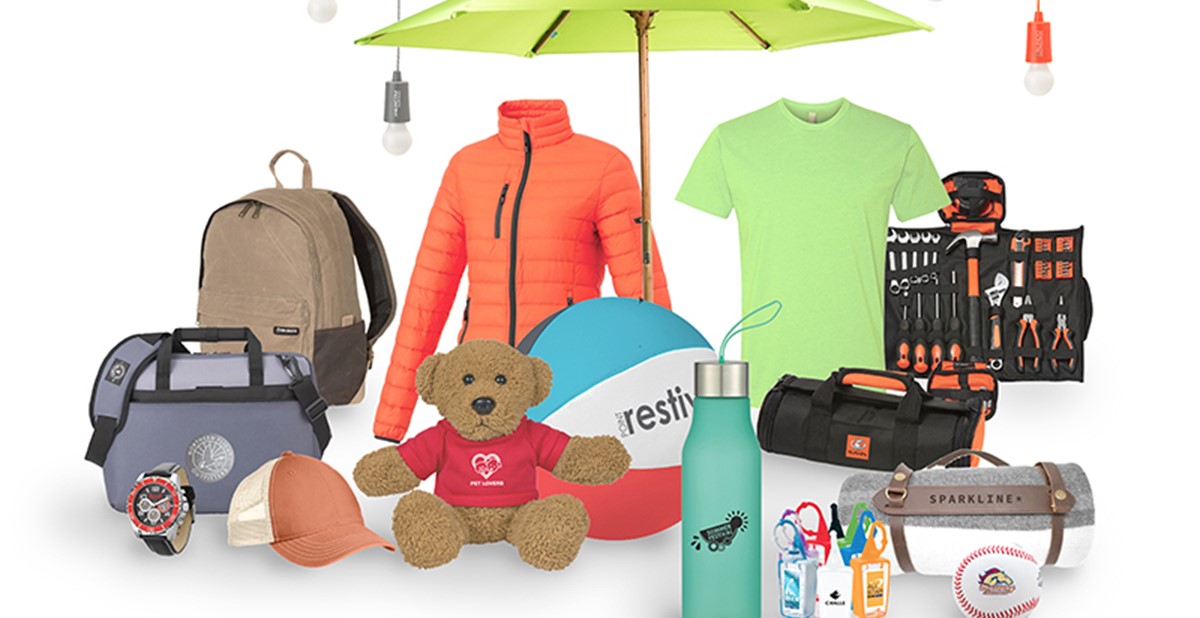Lisa DeJong, MAS: Moving From Transactional To Relational

Lisa DeJong, MAS found herself in the promotional products industry by chance. But after 22 years in the industry—and pushing through the current economic challenges and business changes—she’s committed to the power of promo more than ever.
 In the late ’80s, DeJong stepped away from her corporate career for 10 years to raise her family. When a friend recommended her for a sales support position at a promotional products distributor in town, she jumped at it. “I took the job, and I was hooked,” she says. “That was it, and I was in love with this industry.” Immediately, DeJong was drawn to the promotional products themselves. She especially loved the colorful variety of products available on the market for customization—a limitless array of everything imaginable, from tech gadgets to writing instruments, wearables and housewares.
In the late ’80s, DeJong stepped away from her corporate career for 10 years to raise her family. When a friend recommended her for a sales support position at a promotional products distributor in town, she jumped at it. “I took the job, and I was hooked,” she says. “That was it, and I was in love with this industry.” Immediately, DeJong was drawn to the promotional products themselves. She especially loved the colorful variety of products available on the market for customization—a limitless array of everything imaginable, from tech gadgets to writing instruments, wearables and housewares.
DeJong started working for Michigan-based distributor CE Competitive Edge as a part-time sales account manager 17 years ago. Over time, her responsibilities have grown, and, today, she is a valued member of the leadership team. After transitioning to working-from-home full time due to coronavirus, DeJong has had time to reevaluate her goals and plans for this year.
“Priorities are changing, and they are changing rapidly,” she says. “I am finding myself redirecting, sometimes hour by hour, to meet the demands of the business climate and the needs of the team at CE Competitive Edge.”
Working from home presents new hurdles for DeJong and the CE Competitive Edge team, like time management. “It’s hard to manage time as a leader, and I also have a sales role,” she says. “I find myself spinning around a lot; touching projects too many times since I’ve been home." To overcome her challenges, DeJong implements time-blocking and programs like Trello to better collaborate with team members on projects and orders.
Despite the current limitations and disruptions in business today, DeJong sees the future of marketing as strong. “Human nature makes us consumers, and marketing drives consumptions,” she says. “I think the future of marketing is going to stay strong, but where we are going to see the biggest change is in how marketing is delivered.”
Over the past two decades, DeJong says marketing has transitioned into being transactional as opposed to relational. The explosion of the internet has taken much of the relationship aspect out of selling branded merchandise, she says. “I think the current climate is going to bring relationships back into the marketing process.” She adds, “I think what’s happening is devasting emotionally for everyone, and people need that human connection. As salespeople, we need to be there for customers as a person to lean on, a shoulder to cry on. I think buyers are going to appreciate that—they are going to appreciate the human contact, and they are going to automatically bring the relationship piece into the selling process.”
If businesses hope to reach customers during this challenging time, DeJong suggests using marketing to put the clients first. Caring for customers should be the top priority, she says. She recalls experiencing firsthand the importance of this after recently finding a single kind email in an inbox full of pitches. The subject line of the email was, “Just thinking of you,” and the message read, “Lisa, I hope you and your family are safe and healthy. I don’t want to pitch anything to you; I just want you to know that I am thinking of you. Be well.”
“I was so touched by that,” DeJong says. “I’m a realist and I know this rep probably sent this out to all of his customers he has a relationship with, but it reminded me of the importance to just to talk to my customers. They are probably not interested in me selling them something, but its really important for me to build that relationship with them.”
DeJong says those relationships built with customers during this time won’t be forgotten, and projects will follow in the future. But some tangible ways that businesses can market to their customers are to find the needs that the crisis has created, such as event cancellations. She suggests that businesses start filling in the gaps to support industries that are experiencing major cancellations while also identifying new markets.
At CE Competitive Edge, DeJong says the team is working on meeting their customers where they are, instead of trying to tell them what they need. One way they’ve done this is with teddy bears. “We decided everyone needs a hug right now, and we wanted to meet our customers where they are and they are at home,” DeJong says. Established years ago to celebrate the arrival of a client’s new baby, the teddy bear program at CE Competitive Edge was revamped when COVID-19 hit, and plush bears were sent to customers working at home in hopes it would be displayed in a window, facing the world, to represent that we are all in this together.
“A friend of mine once said to me a long time ago, ‘Lisa, life is change, and growth is optional,’” DeJong says. “And over your life, you don’t remember a lot of things that people say to you, but that’s one of those things that has really stuck with me. And I think it applies in this circumstance, too. We are in a time of change and how we grow from that is our choice.”
–––––––––––––––––––––––––––––––––––––––––––––––––––––––––––
Kristina Valdez is associate editor of PPB.

